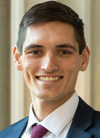Human–AI Teaming
The Human-AI Teaming research program explores how humans and artificial intelligence can collaborate to enhance creativity, decision-making, and support everyday tasks. Our research focuses on understanding similarities and differences between humans and machines. It also involves developing multimodal and multilingual interfaces integrating speech, non-verbal communication behaviors, and haptics, to enable intuitive human-AI interaction. Finally, we work on improving AI reliability through human feedback and enhanced interactions.
Grounded in Idiap’s expertise in multimodal interaction, cognitive systems, and human-robot collaboration, our work aims to create AI that works not just for people, but with people, to amplify human potential and societal impact. More specifically, we aim to design AI systems that improve access to knowledge, provide adaptive, personalized support across roles ranging from personal assistants to industrial and medical companions, and assist people in work and daily life through robotic technologies.
Application domains
- Education & Learning Technologies
- Robotics & Automation
- Assistive Technologies
- Manufacturing & Engineering
Expertise domains
- Bio Informatics & Health Informatics
- Data Science & Social Computing
- Human Computer Interaction
- Imaging & Computer Vision
- Machine Learning
- Natural Language Processing
- Robotics & Autonomous Systems
- Security & Privacy
- Signal Processing
- Speech & Audio Processing
People

ABBET, Philip
(Senior Research and Development Engineer)
- website

ALAVI, Kimia
(Doctoral Researcher)

ALONSO DEL BARRIO, David
(Research and Development Engineer)

BAÑERAS-ROUX, Thibault (Augustin)
(Postdoctoral Researcher)
- website

BAROUDI, Séverin
(Research Intern)

BECKMANN, Pierre
(Doctoral Researcher)
- website

BEN MAHMOUD, Imen
(Research and Development Engineer)
- website

BILALOGLU, Cem
(Doctoral Researcher)
- website

BORNET, Olivier
(Head of Research and Development Team)
- website

BURDISSO, Sergio (Gastón)
(Research Associate)

CALINON, Sylvain
(Senior Research Scientist)
- website

CANÉVET, Olivier
(Senior Research and Development Engineer)
- website

CARRON, Daniel
(Senior Research and Development Engineer)
- website

CLIVAZ, Guillaume
(Senior Research and Development Engineer)
- website

DAYER, Yannick (Nicolas)
(Senior Research and Development Engineer)
- website

DELMAS, Maxime
(Postdoctoral Researcher)

DROZ, William
(Senior Research and Development Engineer)
- website

EL HAJAL, Karl
(Doctoral Researcher)

EL ZEIN, Dina
(Doctoral Researcher)

ESMAEILY, Abolghasem
(Research Intern)

FREITAS, André
(Research Scientist)
- website

GAIST, Samuel
(Senior Research and Development Engineer)
- website

GUPTA, Anshul
(Postdoctoral Researcher)
- website

GUPTE, Vivek (Samir)
(Doctoral Researcher)

HAIDAR, Nawal
(Doctoral Researcher)

HAULOTTE, Manon
(Research Intern)

HENDERSON, James (Brinton)
(Senior Research Scientist)
- website

HERMANN, Enno
(Postdoctoral Researcher)
- website

HERMUS, James (Russell)
(Postdoctoral Researcher)
- website

HOVSEPYAN, Sevada
(Research Associate)

JIANG, Liangze
(Doctoral Researcher)

KAYAL, Salim
(Senior Research and Development Engineer)
- website

KHALIL, Driss
(Research and Development Engineer)
- website

KULKARNI, Ajinkya (Vijay)
(Postdoctoral Researcher)

KUMAR, Shashi
(Doctoral Researcher)
- website

LABRAK, Yanis
(Postdoctoral Researcher)

LI DONG, Virgílio
(Apprentice)

LI, Yiming
(Doctoral Researcher)
- website

LIU, Shiran
(Research Intern)

LÖW, Tobias
(Postdoctoral Researcher)
- website

LUO, Yongkang
(Academic Visitor)

MACEIRAS, Jérémy
(Senior Research and Development Engineer)
- website

MAGIMAI DOSS, Mathew
(Senior Research Scientist)
- website

MARCEL, Christine
(Chargée de l'éducation et de la médiation scientifique)
- website

MARIĆ, Ante
(Doctoral Researcher)
- website

MAYORAZ, André
(Research and Development Engineer)
- website

MICHEL, Samuel
(Research and Development Engineer)
- website

MOHR, Isabelle
(Doctoral Researcher)

MOTLICEK, Petr
(Senior Research Scientist)
- website

MUGNIER, Tom
(Research Intern)

MUKHERJEE, Anirban
(Doctoral Researcher)

NAFEZ, Mojtaba
(Doctoral Researcher)

NANCHEN, Alexandre
(Technology Transfer Manager)
- website

ODOBEZ, Jean-Marc
(Senior Research Scientist with Academic Title)
- website

PIQUER CRESPO, Miguel
(Apprentice)

PRADOS CARRASCO, Adrian
(Research Intern)

PUROHIT, Tilak
(Research Intern)

RAJAPAKSHE, Shalutha
(Doctoral Researcher)
- website

RANALDI, Leonardo
(Postdoctoral Researcher)

SANCHEZ-CORTES, Dairazalia
(Postdoctoral Researcher)
- website

SCHONGER, Martin
(Doctoral Researcher)
- website

SENFT, Emmanuel
(Research Scientist)
- website

SHIRAKAMI, Haruki
(Doctoral Researcher)
- website

TAFASCA, Samy
(Postdoctoral Researcher)

TENEY, Damien
(Research Scientist)
- website

TIMONINA-FARKAS, Anna
(Research Associate)

VERZAT, Colombine
(Technology Transfer Manager)
- website

VILLAMIZAR, Michael (Alejandro)
(Research Associate)
- website

VILLATORO TELLO, Esaú
(Research Associate)
- website

VUILLECARD, Pierre
(Doctoral Researcher)

WANG, Hengfei
(Postdoctoral Researcher)

WATAWANA, Hasindri (Sankalpana)
(Doctoral Researcher)
- website

WYSOCKI, Oskar
(Postdoctoral Researcher)

XU, Lei
(Doctoral Researcher)

ZANGGER, Alicia
(Research and Development Engineer)
- website

ZHANG, Yan
(Doctoral Researcher)
- website
Publication highlights
Neural Network Adaptation and Data Augmentation for MultiSpeaker Direction-of-Arrival Estimation, W. He, P. Motlicek and J.-M. Odobez, IEEE/ACM Trans. on Audio, Speech and Language Processing, 29, pp. 1303-1317, 2021.
The first viable deep learning framework (task definition, network architecture, training paradigm) for solving fundamental auditory tasks such as sound source localization, speaker identification and speech/non-speech classification. The framework is suitable for highly noisy environments and overcomes limitations of previous methods, which heavily relied on idealized sound and environment models and are inadequate for everyday situations with multiple sound sources, background noise, short utterances, and lack of prior knowledge on the number of sound sources. The method learns sound source localization models with limited training resources leveraging simulated and weakly-labeled real audio data.
Active Learning by Feature Mixing, A. Parvaneh, E. Abbasnejad, D. Teney, G. R. Haffari, A. Van Den Hengel, & J. Q. Shi, In Proc. of IEEE Conf. on Computer Vision and Pattern Recognition (CVPR), pp. 12227-12236, 2022.
A method to train deep learning models with humans in the loop. Current approaches to machine learning depend on large amounts of data that are costly or difficult to acquire. This paper presents an active learning approach where human experts interact with the learning algorithm to iteratively refine and resolve inconsistencies in a model by labeling a small set of training examples. This approach contributes to widening the accessibility of machine learning technologies to small organizations.
Learning Joint Space Reference Manifold for Reliable Physical Assistance, Razmjoo, A., Brecelj, T., Savevska, K., Ude, A., Petric, T. and Calinon, S., In Proc. IEEE/RSJ Intl Conf. on Intelligent Robots and Systems (IROS), 2023.
Project highlights
C-LING, 2022-2026, SNSF, Van der Plas: TOWARDS CREATIVE SYSTEMS WITH LINGUISTIC MODELLING
This project aims to investigate what aspects computational models need to perform creative cognitive tasks, from generating relatively simple novel concepts to more complex and structured ideas, across multiple domains and languages. More in particular, it aims to answer what types of structured and unstructured knowledge are needed and what models best integrate these types of knowledge.
NeuMath, 2022-2024, SNSF, Freitas: NEUMATH: NEURAL DISCOURSE INFERENCE OVER MATHEMATICAL TEXTS
NeuMath will develop models which can jointly represent and reason over two symbolic modalities (natural language and mathematical expressions) and will build the foundations to deliver embedding models which can interpret and support the generation of mathematical arguments (by leveraging available large-scale scientific corpora).
SMILE-II, 2021-2024, SNSF Sinergia, Magimai Doss: SMILE-II SCALABLE MULTIMODAL SIGN LANGUAGE TECHNOLOGY FOR SIGN LANGUAGE LEARNING AND ASSESSMENT PHASE-II
The proposed project SMILE-II aims to research and build advanced technology for sign language learning. More precisely, the proposed project builds on the groundwork laid down by the SNSF Sinergia project SMILE, which dealt with assessment of the manual activity of Swiss German Sign Language (Deutschschweizerische Gebärdensprache, DSGS) in isolated signs produced by early learners and L2 learners. SMILE-II will extend this technology to continuous sign language assessment including both manual and non-manual components of signs so that a DSGS learner’s sentence-level production can be assessed in an automatic manner.
Full list of related projects
C-LING, 2022-2026, SNSF, Van der Plas
Building computational models of human creative thinking to help with creative tasks
NeuMath, 2022-2024, SNSF, Freitas
Neuro-symbolic architectures for supporting mathematical discovery
NAST, 2020-2024, SNSF, Garner
Neural architectures for speech technology
SteADI, 2021-2025, SNSF, Garner
Storytelling algorithms for digital interviews
NKBP, 2020-2024, SNSF, Henderson
Deep learning models for continual extraction of knowledge from text
SINFONIA, 2023-2027, Innosuisse, Teney, Freitas
Generalization and domain adaptation of large language models
LUCIDELES, 2020-2023, SFOE, Kämpf
Research at the interface between humans and building control systems
CODIMAN, 2020-2024, National Research Programme "Digital Transformation", SNSF, Calinon
Cobotics, digital skills and the re-humanization of the workplace
SESTOSENSO, 2022-2025, Horizon Europe, Calinon
Physical cognition for intelligent control and safe human-robot interaction
SMILE-II, 2021-2024, SNSF Sinergia, Magimai Doss
Assistive technology for sign language learning and testing
Amazon research award, 2023, Teney
Addressing underspecification for improved fairness and robustness in conversational AI
MALORCA, 2016-2018, EU, Motlicek
Machine learning of speech recognition models for controller assistance
HAAWAII, 2020-2022, EU, Motlicek
Highly automated air-traffic controller workstations with artificial intelligence integration
ATCO2, 2019-2022, EU, Motlicek
Automatic collection and processing of voice data from air-traffic communications
EUROCONTROL, 2023-2024, France, Motlicek
Automatic speech recognition in air-traffic control simulation




